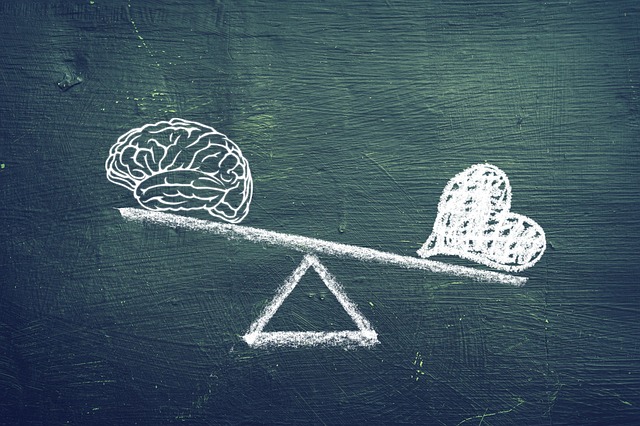Denial is when you refuse to accept that something is true, even though there is evidence that it is. Rationalization is when you try to explain away something that you don’t want to believe is true.
What is denial?
(Photo by whoislimos on Unsplash )

Denial is a psychological defense mechanism that involves avoiding or minimizing the significance of a particular situation, feeling, or reality that is difficult to face. It is a way of protecting oneself from feelings of fear, anxiety, guilt, or shame by denying the existence of a problem or avoiding responsibility for it.
Denial can take many forms, including:
- Denial of the facts: This involves denying the existence of a problem or the reality of a situation.
- Minimization: This involves acknowledging the problem, but downplaying its significance or impact.
- Rationalization: This involves justifying the problem or explaining it away as being out of one’s control.
- Projection: This involves attributing one’s own feelings or behavior to someone else, in order to avoid facing the reality of the situation.
Denial can be a temporary coping mechanism, but it can also prevent individuals from addressing problems and can lead to negative consequences in the long term. It is important to recognize when denial is occurring and seek help in order to work through difficult emotions and address problems in a constructive way.
What is rationalization?
(Image by Tumisu from Pixabay )

Rationalization is a psychological defense mechanism that involves finding logical or plausible explanations for behaviors, thoughts, or feelings that may be unacceptable or difficult to accept. It is a way of justifying or explaining away behavior that might otherwise be seen as problematic, in order to avoid feelings of guilt or anxiety.
- Rationalization can take many forms, including:
- Excuses: This involves providing a reason or explanation for a behavior that may be perceived as negative or inappropriate.
- Blaming: This involves shifting responsibility for a behavior or situation onto someone else, in order to avoid accepting responsibility.
- Minimizing: This involves downplaying the significance of a behavior or situation, in order to make it seem less problematic.
- Intellectualizing: This involves using abstract or intellectual concepts to explain a behavior or situation, in order to distance oneself from the emotions associated with it.
Rationalization can be a useful coping mechanism in some situations, as it allows individuals to maintain a sense of control and avoid overwhelming emotions. However, it can also prevent individuals from acknowledging and addressing their own behavior, which can lead to negative consequences in the long term.
It is important to be aware of the role that rationalization can play in one’s own thinking, in order to avoid avoiding responsibility for one’s actions and to address problems in a constructive way.
Denial Vs. Rationalization – Key differences
It is important to understand the key differences between denial and rationalization in order to effectively deal with them. Denial is defined as “a defense mechanism in which a person is able to reject or refuse to accept reality or facts”. Rationalization, on the other hand, is defined as “a defense mechanism in which a person tries to justify their actions or thoughts”.
There are several key differences between denial and rationalization:
- Denial is characterized by a refusal to accept reality or facts, while rationalization involves trying to justify one’s actions or thoughts.
- Denial is often used as a way to protect oneself from painful truths, while rationalization may be used as a way to make oneself feel better about something that has already happened.
- Denial can be seen as a form of self-deception, while rationalization may involve more logical thinking processes.
- Denial typically occurs unconsciously, while rationalization may be more of a deliberate process.
How to know if you are in denial or rationalizing?
If you find yourself making excuses for your behavior or downplaying the seriousness of a situation, you may be in denial. Denial is a common defense mechanism that allows us to avoid facing painful realities. It can be helpful in small doses, but when used excessively, it can prevent us from resolving problems and moving on with our lives.
Rationalization is another common defense mechanism. It involves justifying our actions or beliefs even if they are not rational. We may rationalize our behavior because we are afraid of the consequences of admitting we were wrong. Rationalization can also be used to justify harmful or dangerous behavior.
It can be difficult to tell the difference between denial and rationalization. Both involve avoiding painful truths and Both involve avoiding painful truths and both can lead to harmful consequences. If you are unsure whether you are in denial or rationalizing, it may be helpful to talk to a therapist or counselor who can help you explore your thoughts and feelings.
Is rationalization a form of denial?
Rationalization is a form of denial in that it is an attempt to make something that is potentially negative seem more positive. For example, someone might rationalize their drinking problem by saying that they only drink to relax or socialize, when in reality they are using alcohol to cope with problems or emotions.
What are examples of rationalization?
There are many examples of rationalization, but here are a few common ones:
- Justifying bad behavior: “I wasn’t really cheating, I was just testing my partner’s trust.”
- Making excuses for inaction: “I didn’t go to the gym today because I’m too tired.”
- Downplaying the importance of something: “It’s not a big deal if I miss one day of work.”
- Blaming others for your own problems: “My parents didn’t love me, that’s why I’m messed up.”
- Minimizing the seriousness of an issue: “It’s not like I’m addicted to drugs, I can stop anytime.”
What are examples of denial?
There are many examples of denial. Denial can be something as simple as refusing to believe that a loved one has died. It can also be more complex, such as denying that an addiction or mental health problem exists. People in denial may also make excuses for their behavior or try to rationalize it. For example, someone who is addicted to drugs may deny that they have a problem and claim that they can stop using anytime they want. Or, someone with depression may try to convince themselves that their feelings are just temporary and not worth seeking help for. In some cases, denial is a coping mechanism that helps people deal with difficult situations. However, denial can also be harmful if it prevents people from getting the help they need.
The disadvantages of denial
- Preventing problem-solving: Denial can prevent individuals from recognizing and addressing problems in their lives, which can lead to the problems becoming worse over time.
- Interfering with personal growth: By avoiding difficult feelings or situations, individuals may miss out on opportunities for personal growth and development.
- Damaging relationships: Denial can strain relationships with others, as it can make it difficult to communicate openly and honestly.
- Negatively affecting mental health: Denial can lead to feelings of anxiety, depression, and isolation, as individuals may feel unable to cope with their emotions or situation.
- Impeding recovery: Denial can make it difficult for individuals to recover from addiction, illness, or other challenges, as it prevents them from recognizing the need for change.
In general, denial can be a defense mechanism that helps individuals cope with difficult situations or emotions in the short term. However, in the long term, denial can be harmful and prevent individuals from living fulfilling and healthy lives. It is important to recognize when denial is occurring and seek help in order to work through difficult emotions and address problems in a constructive way.
The disadvantages of rationalization
- False sense of justification: Rationalization can provide individuals with a false sense of justification for their actions or beliefs, even if they are harmful or irrational.
- Impaired judgment: Rationalization can impair an individual’s judgment, making it difficult to see things clearly or make objective decisions.
- Reduced self-awareness: Rationalization can prevent individuals from recognizing their own biases, assumptions, or limitations, which can limit personal growth and development.
- Damaged relationships: Rationalization can damage relationships with others, as it can make it difficult to communicate openly and honestly and can lead to feelings of resentment or mistrust.
- Resistance to change: Rationalization can make it difficult for individuals to change their behavior or beliefs, as it provides a way to justify or explain away problematic actions or thoughts.
In general, rationalization can be a defense mechanism that helps individuals cope with difficult situations or emotions in the short term. However, in the long term, it can be harmful and prevent individuals from living fulfilling and healthy lives. It is important to recognize when rationalization is occurring and seek help in order to work through difficult emotions and address problems in a constructive way.
featured Image By – Photo by Nathan Cowley







